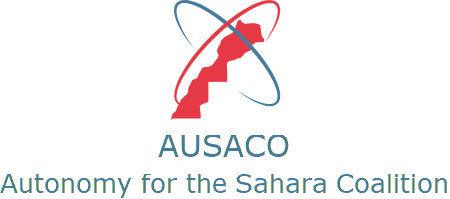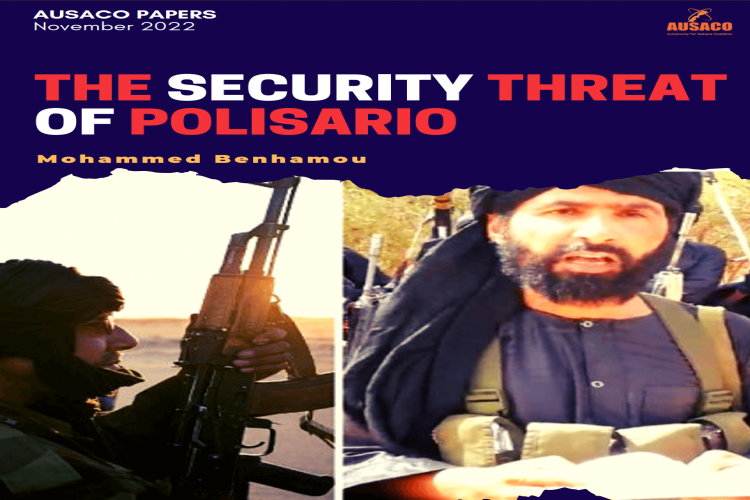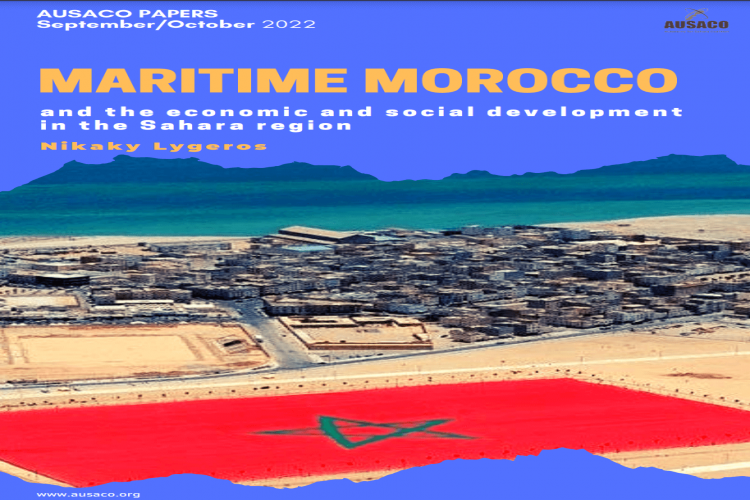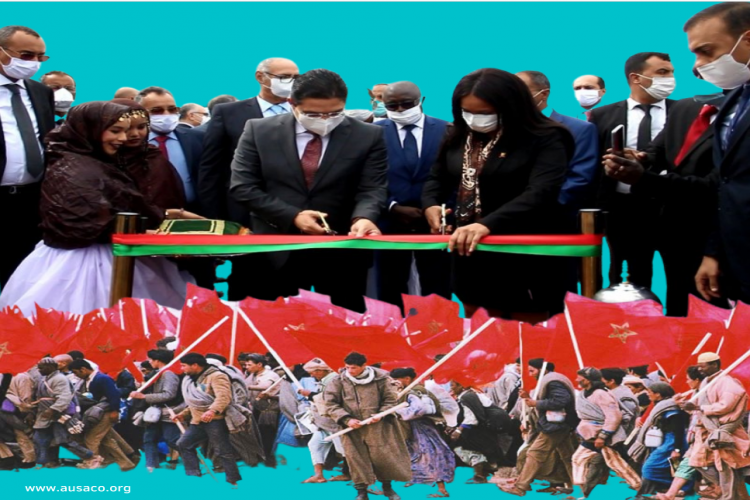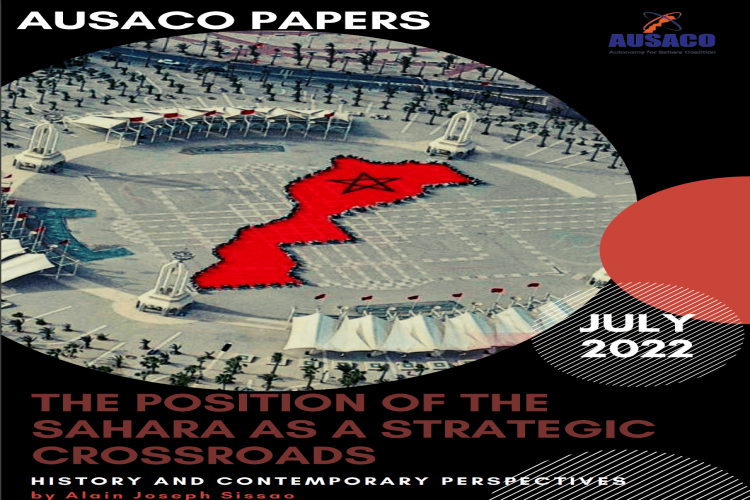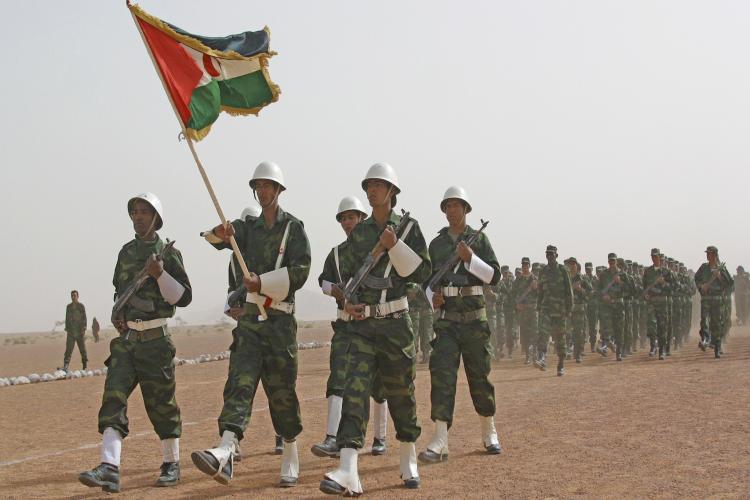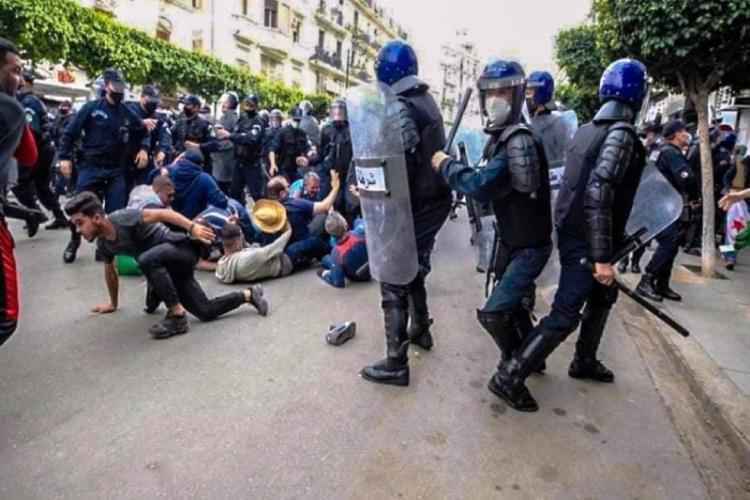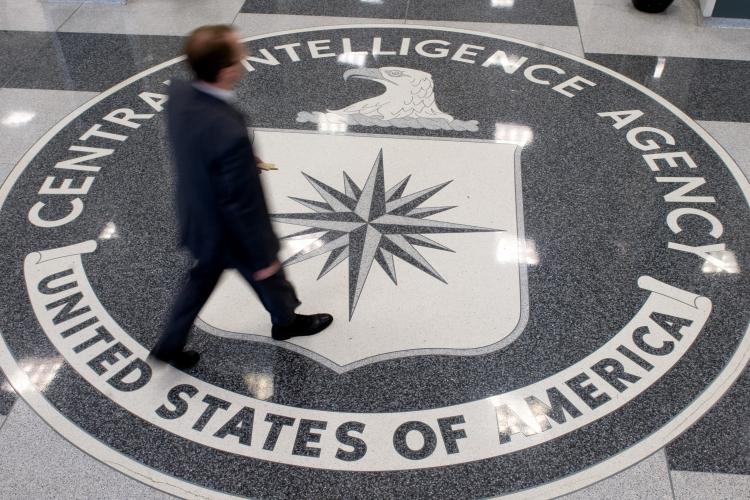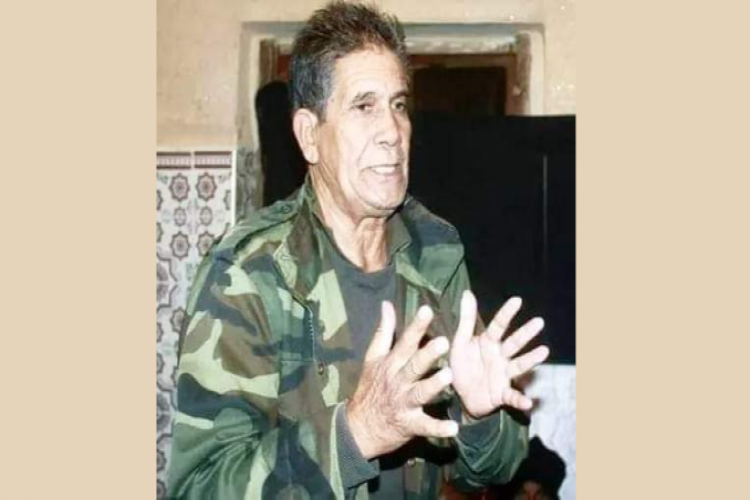| Attachment | Size |
|---|---|
| Why the International Community Must Show Clear Support? (5.19 MB) | 5.19 MB |
The regional dispute over the Moroccan Sahara remains one of the oldest conflicts in contemporary history due to the conflicting interests of the parties to the dispute and hostility to Morocco’s legitimate historical rights over its Sahara.
The status quo precludes any possibility of an economic development model in the North African region, like the aborted project of the Arab Maghreb Union. Worse still, the stalemate of this regional dispute has a strong and direct impact on the peace and security of the region and of the African and European continents.
The context for a resolution of the issue has completely changed. The reason is that the regional dispute arose in the context of the Cold War, in 1975, when Morocco recovered its Sahara under the Madrid Agreement. Since that date, the Sahara conflict has been the culmination of tension between Morocco and Algeria, belonging respectively to the west and east ideological blocks.
Nowadays the current geopolitical parameters are no longer the same. New threats have replaced the old ones. New multidimensional challenges have emerged in the Sahel-Sahara region, with implications for the entire world. Maintaining lasting peace is more important than ever and remains crucial for the stability and the security of the African continent.
Morocco's geostrategic position, as a link between Europe and Africa, places it at the heart of these challenges. The current regional situation favors the strengthening of Morocco's role as a leading actor, at all levels, in the region but also more globally for the African and the European Continents. The international community must take seriously into account this important element in the perspective of the resolution of the regional dispute over the Sahara.
The idea of the creation of a microstate in the region does not have any consensus within the international community, which sees it more as a factor of destabilization of a region already plunged in an uncertain political and security situation.
In addition, the former UN Personal Envoy for the Sahara, the Dutch Ambassador Peter Van Walsum, stressed in a briefing before the UN Security Council, held on 16 April 2008, that «an independent Sahrawi state is not a realistic option». This statement was made one year after the submission by Morocco of its autonomous status.
Engaged with good faith in the resolution of this dispute, Morocco has taken a giant step forward in proposing a third way between the pure and simple integration of the Sahara in Morocco and an idea of an independence of the territory.
The major international geopolitical changes, after the end of the Cold War and the fall of the Berlin Wall, have placed the autonomy solution at the heart of the international democratic parameters of conflict resolution, while respecting the territorial integrity of States.
Morocco has thus entered into a process of settling the Sahara conflict, by proposing in 2007 a statute of autonomy for the Sahara, within the framework of its sovereignty and its national unity. An initiative that aims, for Morocco, to build a society based on the rule of law, individual and collective freedoms and economic and social development. This would put an end to separatism while promoting reconciliation.
Morocco’s proposal for an autonomy status for the population of the Sahara remains the only credible and serious proposition on the table of the negotiations. The world should encourage this initiative, which deserves to be examined more seriously by the other parties if they are to demonstrate their commitment to a definitive political solution to the regional dispute over the Sahara.
The new impetus provided to the political process by the UN Secretary general, since 2017, allowed the holding of the two round tables in Geneva with the participation of the real stakeholders in the dispute, namely Morocco and Algeria.
It is now time for the international community to put pressure on “Polisario” to seriously examine the autonomy initiative so as not to miss a chance to resolve without further delay this dispute, which has more than to last.
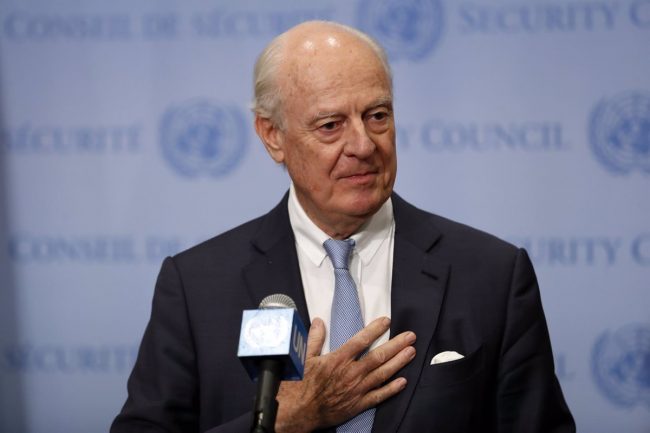
The objective of this article is:
- To understand the motivations which led Morocco to present this autonomy initiative
- To define the contours of the content of the document submitted by Morocco in 2007 to the UN Security Council
- To apprehend how the initiative autonomy responds to the political solution advocated by the members of the Security Council and the international community
The purpose of my contribution to this book is not to revisit the history of the regional dispute over the Sahara, apportion blame and promote “good guys versus bad” but to evaluate, with the experience of thirty-three years as an elected politician, the realistic possibility of a political solution that would benefit those who live or chose to live in the Moroccan Sahara.
For forty years my wife and I have frequently visited Morocco. My sons were very young for our first family holiday in Morocco, back in the eighties and more recently one of them had his honeymoon near Marrakech. My daughter did her academic degree dissertation on the Sahara issue and I have visited the country over a hundred times.
For over twenty years I chaired the All-Party Parliamentary Group on Morocco in the British parliament. This body comprised parliamentarians from all the major political parties in both the House of Commons and House of Lords. As a forum, it was open to any parliamentarian, including those more inclined to support Algeria and the “Polisario”. Indeed, my Deputy-chairman was a Labour Member of Parliament, who also went on to chair the All-Party Parliamentary Group on Algeria.
Leading this group gave me an opportunity to meet politicians, diplomats, businessmen and journalists with an interest in North African affairs. Having visited Morocco over a hundred times I developed a deep affection for Morocco as a physically beautiful country with people of a friendly and generous nature.
In relation to the subject of this article, I have had opportunities to meet in person, in the Moroccan Sahara, with Sahrawi tribal leaders, local, regional and national politicians, human rights activists and journalists. Several visits to the United Nation’s MINURSO presence in Laayoune were highly instructive and their briefings completely without bias. I met also with former “Polisario” supporters who had fled the camps claiming brutality and a lack of law and human rights.
All this to say that these meetings allowed me to gather important testimonies on the dynamics that this issue is experiencing in the field. This introduction is to give a context to the position I take on the future of the “Western Sahara”, as it is known internationally and as the Moroccan Sahara in reality.
Morocco participated loyally to the implementation of the Settlement Plan proposed in 1991 by the United Nations in order to resolve the dispute over the Moroccan Sahara issue. Nevertheless, many reasons led the UN Secretary-General (Report S/2000/131 as of 23 February 2000) and the UN Security Council to conclude to the inapplicability of the Settlement Plan. Among these reasons, the complexity and the delicate aspect of the identification process, the deliberate will of other parties to exclude important segments of the Sahrawi tribes from this process as well as the fundamental divergent opinions in positions taken by parties on key segments of the Plan.
The failure of the Settlement Plan paved the way to new proposals with a political rather than a legal scope or a referendum format. On one hand, the Baker Plan I (Framework Agreement) presented in June 2001, which was accepted by Morocco and rejected by Algeria and the “Polisario” and on the other hand, the Baker Plan II (Peace Plan) in July 2003, whose implementation was conditioned by the UN Security Council by the acceptance of all parties.
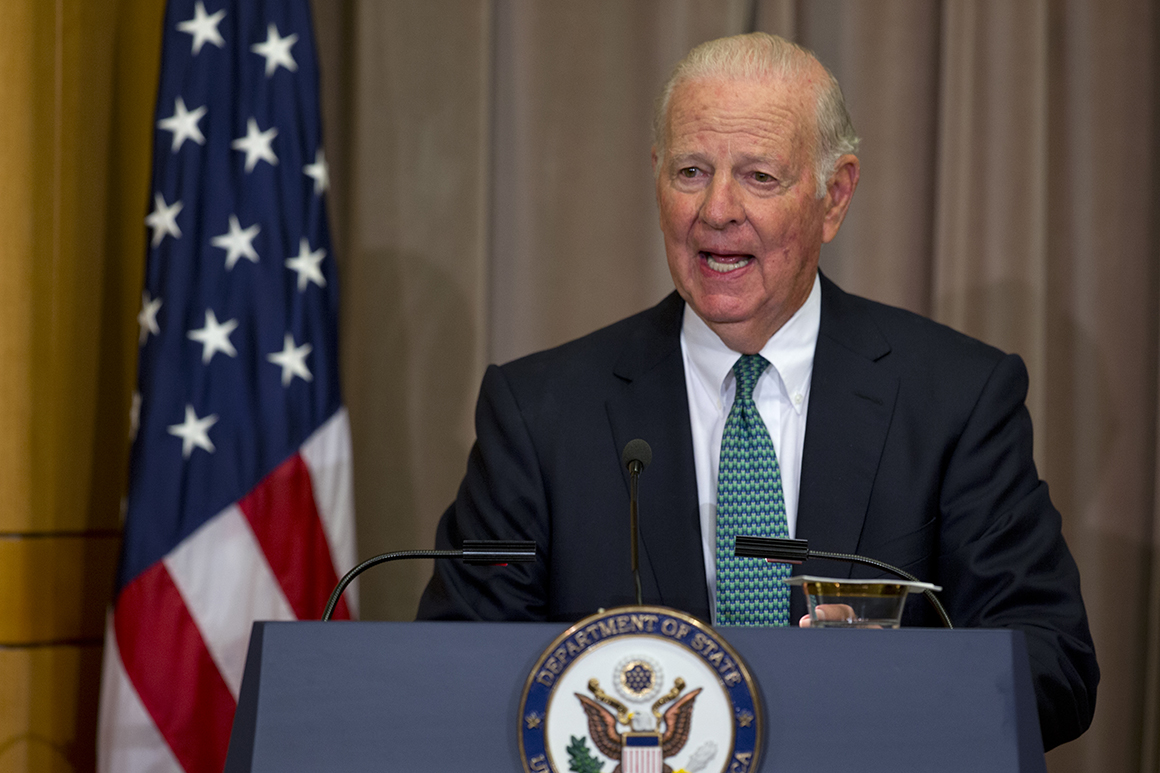
Due to fundamental divergent opinions among the parties on the two Plans mentioned above, the UN Security Council, in its Resolution 1541 as of 29 April 2004, definitively clarified the ultimate method to be recommended by the international community to resolve the Sahara issue that is a negotiated and mutually acceptable political solution.
By doing so, the United Nations buried once and for all the previous Plans and called upon parties to end the political deadlock and to progress towards a negotiated and mutually acceptable political solution.
As part of the case study on regional autonomies[1], A. C. Pereira-Meanaut stated that the autonomy implies that the region has true political power which, although lesser than that of sovereignty, is greater than that of administrative decentralisation.
He added that it is a limited and derived power, coming from a Constitution which defines it in precise terms and which for this reason has to be a written and rigid one, which cannot be freely changed by the central Parliament. The regional power exercises real governing functions, although limited, and is not hierarchically subordinated to the central Government.
Decentralization and special autonomy can establish forms of government that comply with international law standards on minority protection and self-determination.
Though there is no uniform application or standard, the right to self-determination is today predominantly interpreted as a people’s or peoples' right to local self-governance or autonomy.
Thus, international documents to some extent provide normative arguments that can be used in peace negotiations. Several international documents establish rules and recommendations for local self-government[2].
In response to the UN Security Council calls to the parties in order to end the political deadlock, occurred since 2004, Morocco presented to the UN Secretary-General on 11 April 2007 the “Moroccan Initiative for Negotiating an Autonomy Status for the Sahara Region”.
In his Speech at the occasion of the 32nd anniversary of the Green March, His Majesty King Mohammed VI declared that: "Morocco, basing itself on a consultative approach at the local and national levels, and relying on unanimity without flaw, has endeavored to present a courageous initiative in favor of autonomy, an initiative which meets international standards, respects international legality and takes into account the socio-cultural specificities of the region[3] ".
The King of Morocco added that: “We have made positive efforts to give substance to this project, while remaining driven by a responsible, daring and realistic spirit. Combined with the broad international support garnered by our constructive initiative, these efforts have given rise to a new UN approach, in the treatment of our fundamental national cause”.
It is a judicious step, which dismisses, in a definitive way, all the sterile previous plans. It thus enabled the unanimous adoption by the Security Council of Resolution 1754, which recognized the sole Moroccan initiative, and no other, to be “serious and credible”.
The conception of the Moroccan autonomy initiative is the fruit of several years of preparation and inclusive consultations at the national and local levels, in particular with all the compositions of the population of the Moroccan Sahara, as well as with the political parties and the representatives of the Nation.
On the other hand and by virtue of the Dahir establishing the Royal Consultative Council for the Saharan Affairs (CORCAS), the Council is requested to assist the King of Morocco for all questions relating to the defense of territorial integrity and national unity of the Kingdom as well as the promotion of the economic and social development of the southern provinces and the preservation of their cultural identity.
This council, which is made up of members from the population of the Sahara, was in charge for the elaboration of the Initiative of Autonomy, which was submitted to the King of Morocco on December 5, 2006. Its content referred to an autonomous government and parliament with a judicial authority.
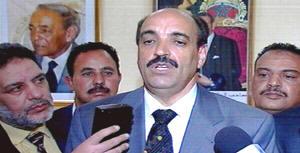
In a press conference dated December 6, 2006, Mr. Khalihenna Ould Errachid, President of CORCAS underlined that “the Council's proposal was not regionalization, nor decentralization but a real autonomy like those in force in Europe" [4].
Through this Initiative, Morocco guarantees to the populations of the region to democratically run their affairs through legislative, executive and legal bodies.
The populations will be endowed with financial resources in order to contribute to the development of the region in all fields and participate actively in boosting the economy and reviving the cultural and social life, not only in the Sahara region but throughout all Morocco.
Based on compromise, this Initiative is in full conformity with the International Law, the UN Charter and the UN Resolutions of both the General Assembly and the Security Council as well as with the right to self-determination.
In fact, the Autonomy Status of the Moroccan Sahara region will be negotiated and submitted to the concerned populations for consultation, as stated in the article 27 of the Moroccan Initiative Autonomy.
Since its submission on April 30, 2007, the Security Council adopted Resolution 1754, which took note of the Moroccan proposal for an autonomous status to the Sahara region, while making no reference to previous plans, including the Baker II Plan.
By this resolution, the Security Council praised “the serious and credible efforts” in the presentation by the Kingdom of the initiative with a view to reaching a political, just, lasting and mutually acceptable solution.
- What does the autonomy initiative propose[5] and how can it satisfy the right to self-determination?
Within the framework of the International law, the autonomy corresponds to a juridical-political arrangement intended to be a means of diffusion and distribution of power in order to preserve the unity of a State, while respecting the diversity of its components.
The statutes of territorial political autonomy allow the granting to a group distinct from the majority of the population of a State, nevertheless constituting the majority in a specific region, a means of expression of its identity. More than 70 autonomy agreements have been concluded since the end of the Second World War around the world.
The Autonomy Initiative is consistent with the principle of self-determination. It achieves this through a free, democratic and modern expression of the status of autonomy, which will result from the negotiations. It therefore complies with international law and incorporates international norms and standards on autonomy.
Once the negotiations on the status of autonomy have been concluded between the parties, the Agreement shall be submitted to the populations concerned in a free referendum.
The Parties will undertake to work jointly in favour of this Political Agreement and its approval by the people of the Sahara (Articles 27 and 28).
The main areas of intervention in this initiative are the establishment of representative local institutions enabling the exercise of the political, social and cultural rights of the populations of the Southern Provinces and the maintenance of the territory under Moroccan sovereignty.
The exclusive competences of the Moroccan State will concern the sovereign domains, in particular the defence, external relations and the constitutional and religious prerogatives of His Majesty the King (Article 6).
The Autonomous Region of the Sahara will have the financial resources necessary for its development in all areas (article 13). These resources will consist in particular of:
- Taxes, charges and territorial contributions decreed by the competent bodies of the Region
- Income from the exploitation of natural resources allocated to the Region
- Part of the income from natural resources located in the region. Region and collected by the State
- The necessary resources allocated within the framework of national solidarity - Income from the heritage of the Region.
External relations are an area where the Moroccan State will consult the Sahara Autonomous Region on issues directly related to its responsibilities. It is also intended that the Sahara region will develop links of inter-regional dialogue and cooperation with foreign regions (Article 15).
A Government delegate will exercise the powers of the State in the Sahara Autonomous Region (Article 16).
The Autonomy Initiative gives an important place to the principle of subsidiarity since powers which are not specifically allocated will be exercised, by common agreement, on the basis of this principle (Article 17).
The Moroccan Initiative for the Negotiation of an Autonomy Statute for the Sahara Region contains the seeds of the essential elements not only of the final and peaceful settlement of a regional dispute, but also a potential for regional integration which would ensure the development of all the populations concerned, while respecting their interests and diversity.
The Autonomy Initiative provides for confidence-building and transition measures: amnesty, return of refugees, a Transitional Council charged, among other things, with preparing the first elections in the Autonomous Region:
- The establishment of a Transitional Council composed of representatives of the parties (Article 32) which will assist in the repatriation, Disarmament, Demobilization and Reintegration (DDR)of armed elements outside the territory; any action aimed at the approval and implementation of the status of autonomy, and electoral operations (Article 32).
- A general amnesty will be decreed by Morocco. It excludes all prosecution, arrest, detention, imprisonment or intimidation (Article 31).
- The repatriation and full reintegration by Morocco under conditions guaranteeing dignity, security and protection of property (Article 30).
Self-administration is present in force in the Autonomy Initiative since it states in its articles 4 and 5:
- The guarantee to all Sahrawis from within and outside, their full place and role, without discrimination or exclusivity, in the bodies and institutions of the region (Article 4);
- The management by the people of the Sahara of their affairs through legislative, executive and judicial bodies endowed with exclusive competences (article 5).
The process for approving and implementing of the autonomy status is fluid and integrated. The status of autonomy will be annexed to the Constitution, a guarantee of its stability, of its particular nature in the internal legal system (Article 29).
The approval of the status of autonomy will be a guarantee of the application of the right to self-determination since the planned consultation respects in all points the Charter of the United Nations, the resolutions of the General Assembly and the Security Council (Article 27).
To this end, the constitutional sequence will be crucial since consultation of the populations concerned is planned after the Moroccan constitution has been revised (Articles 8 and 27).
From a UK perspective, resolving such intractably opposing views on the future of the Sahara is not just a theoretical exercise. Within the United Kingdom of Great Britain and Northern Ireland, the Northern Ireland community had become a violent, economic and civil mess. The need for armed soldiers on the streets did nothing to boost either commercial or civilian confidence.
The Unionists, predominantly Protestant in faith, were the majority population but considered themselves under siege by the minority Republican population, predominantly Roman Catholic in faith. Both sides proved capable of terrorist acts of considerable violence, mounting death tolls and horrific examples of torture, which seemed to prohibit any chance of a political resolution.
But ordinary citizens were growing tired of the violence, seeing their children leave for safer countries and feared for the future.
During the 1990’s, under prime minister John Major (Conservative) and continued with determination by prime minister Tony Blair (Socialist), it was possible to commence secret talks with Sinn Fein, the political wing of the terrorist Irish Republican Army and the Unionists. Ultimately, they were able to conclude the “Good Friday Agreement” which brought about power-sharing on a democratic basis.
This was put to the people of Northern Ireland (Ulster) in a referendum with 72% supporting it and to the people of the Republic of Ireland (Eire) where 94% endorsed it.
The importance of American presidential involvement in that process should not be understated. Irish Republicans, predominantly Roman Catholic in faith, knew that if they did not change their stance, then the funding and support they had received from the US Irish-American diaspora, also predominantly Roman Catholic in faith, would be much harder to get.
It may be that history will judge President Trump’s decision in December 2020 to recognise Moroccan sovereignty over the Saharan provinces and President Biden’s decision to maintain the USA position will be as significant a factor in a future resolution as it was on the island of Ireland.
Following its independence, Morocco proceeded with the implementation of the decentralization project by granting more powers to local communities which reinforced by developments in local government law, in the framework of its endeavour for the advent of a democratic society, based on the rule of law.
By submitting in 2007 the Initiative for an autonomy statute for the Sahara, Morocco is continuing the establishment of the advanced regionalization system throughout the national territory.
The objective of regionalization is to strengthen the democratic process through the establishment of democratic local governance by including local actors in the autonomous management of their affairs through arrangements adapted to their specificities and potentialities.
The effective political participation of Moroccan women, especially in the Sahara, is today a tangible reality, as evidenced by the access of many women to elective mandates at the local, provincial, regional and national levels.
During the first regional elections held in the Kingdom of Morocco, in 2015, the voter turnout in the two regions of the Sahara reached 79%, which is the highest in the entire country.
It is undeniable that the question of the Sahara has known since 2015, the date of the launch of the New Development Model for the Southern Provinces, a qualitative evolution both at the United Nations level and on the ground.
With a budget of 8 billion dollars, the New Development Model has launched a numerous projects in the fields of health, infrastructure, training, industry, agriculture, renewable energies and sea fishing. These are all projects aimed at erecting the Sahara region as a land of opportunities, par excellence, for foreign economic investments.
As a British politician, I can only welcome the signing in 2019 of the Association Agreement between the United Kingdom and Morocco, aimed at further boosting economic and trade exchanges, including in the region of the Sahara.
Since 2019, we are witnessing the new dynamic of the opening of Consulates General by several countries from different continents in the Sahara. So far, 22 countries, in the space of less than two years, have opened a Consulate General in the cities of Laayoune and Dakhla. The Consulates General are meant to serve, indeed, the strengthening of the socio-economic and cultural cooperation between Morocco and these countries.
The multiplication of the opening of consulates general by several countries of the African, Asian and American continent in the cities of the Moroccan Sahara is now an irreversible reality which consecrates the territorial integrity of Morocco and confirms the explicit support of these countries for the sovereignty of the Kingdom over its southern provinces.
The United Nations must take this concrete recognition of the Moroccanity of the Sahara into account. This is a major and first-rate development illustrating that there can be no solution to the regional dispute of the Sahara except with respect for the sovereignty and territorial integrity of Morocco.
Last December, more precisely, on 10th December 2020, the US decision to recognize Morocco's sovereignty over its Sahara gave new impetus to international support for the Moroccan autonomy initiative. Furthermore, on 15th January 2021, more than 40 countries gave, during an International Ministerial Conference, chaired par the United States of America and the Kingdom of Morocco, a clear and strong support to this Initiative as the unique solution for the resolution of the regional dispute.
The support of most States in the world to the Autonomy Initiative under Morocco’s sovereignty strengthens the prospects of stability and prosperity not just in the region, but also in the whole African continent.
In practical terms, it is an important historic achievement and a positive turning point for the Kingdom's territorial integrity.
By Derek Conway
[1] https://www.law.kuleuven.be/apps/jura/public/art/24n1/pereirameanaut.pdf
[2]https://peacemaker.un.org/sites/peacemaker.un.org/files/Peace_Mediation_Essentials_Decentralization.pdf
[3] Speech of His Majesty the King on the occasion of the 32nd Anniversary of the Green March, https://www.maroc.ma/fr/discours-royaux/texte-int%C3%A9gral-du-discours-de-sm-le-roi-%C3%A0-loccasion-du-32%C3%A8me-anniversaire-de-la
[4] « Sahara: L’option «autonomie» se précise », Journal l’Economiste du 7 décembre 2006, p. 36
[5] Letter n°S/2007/206 from the Permanent Representative of the Kingdom of Morocco addressed to the UN Secretary General on 11th April 2007.
